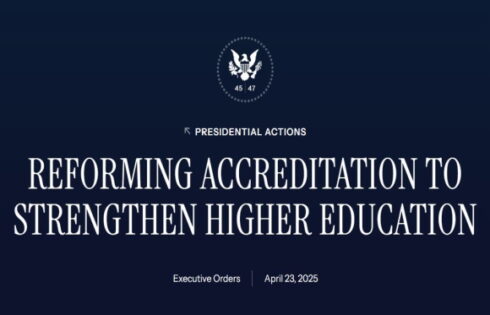
Beginning this fall, Colorado students can have the first two years of their college tuition reimbursed as a tax credit under a new state law.
The law covers students from public high schools whose family income is under $90,000 a year.
Signed on May 30 by Colorado Gov. Jared Polis, the Incentives for Post-Secondary Education bill establishes a tax credit covering 100 percent of tuition and fees, after grants and scholarships are applied, for up to 65 academic credits at trade schools, community colleges, and four-year institutions.
After signing it, Polis, a Democrat, hailed it as a “bipartisan bill” in a post on X, adding: “Cost should not be a barrier for people to live up to their potential, which is why we are expanding access to higher education and reducing the financial burden on students and families.”
The bill defines qualified students as those with good academic standing, determined by a grade point average of at least 2.5, and a household income of $90,000 or less.
“This is a refundable credit, meaning that even if a student earned $0 that year and paid $0 in federal taxes, they will receive the full tuition and fee payments as a refund. Even if students are listed as dependents on their parents’ taxes, students should file separately to request the tax credit,” the Colorado Department of Higher Education states on its website.
According to Gov. Polis, the goal is to help families whose household income is too high to qualify for the Pell Grant but too low to cover four years of college tuition. However, it does not come without cost.
Today I was thrilled to sign a bipartisan bill into law to make the first two years of college free for students whose family income is under $90,000/year. Cost should not be a barrier for people to live up to their potential, which is why we are expanding access to higher… pic.twitter.com/puGxGncepL
— Governor Jared Polis (@GovofCO) May 30, 2024
Also known as the Colorado Promise, the program is expected to cost Colorado taxpayers $40 million annually, Inside Higher Ed reported.
“The Colorado Department of Higher Education estimates approximately 28,000 students in the 2023-24 school year would meet the requirements for the income tax credit,” CBS reported.
The bill requires students to complete the Free Application for Federal Student Aid, or FASFA, apply for the Pell Grant, and pay their tuition up-front before receiving reimbursement.
“My concern with the Colorado Promise is that very low-income families may not have the upfront funds necessary for tuition,” Pam Benigno, director of the education policy center at the Independence Institute, told The College Fix in an email. “The program relies on a refundable tax credit that they will receive later.”
Some critics argued the program might artificially inflate tuition costs, that the government should not be involved in funding higher education, and that it reduces personal responsibility.
MORE: Workers can increase pay without college degree: Colorado report
IMAGE: Wave Break Media / Shutterstock
Like The College Fix on Facebook / Follow us on Twitter






Please join the conversation about our stories on Facebook, Twitter, Instagram, Reddit, MeWe, Rumble, Gab, Minds and Gettr.